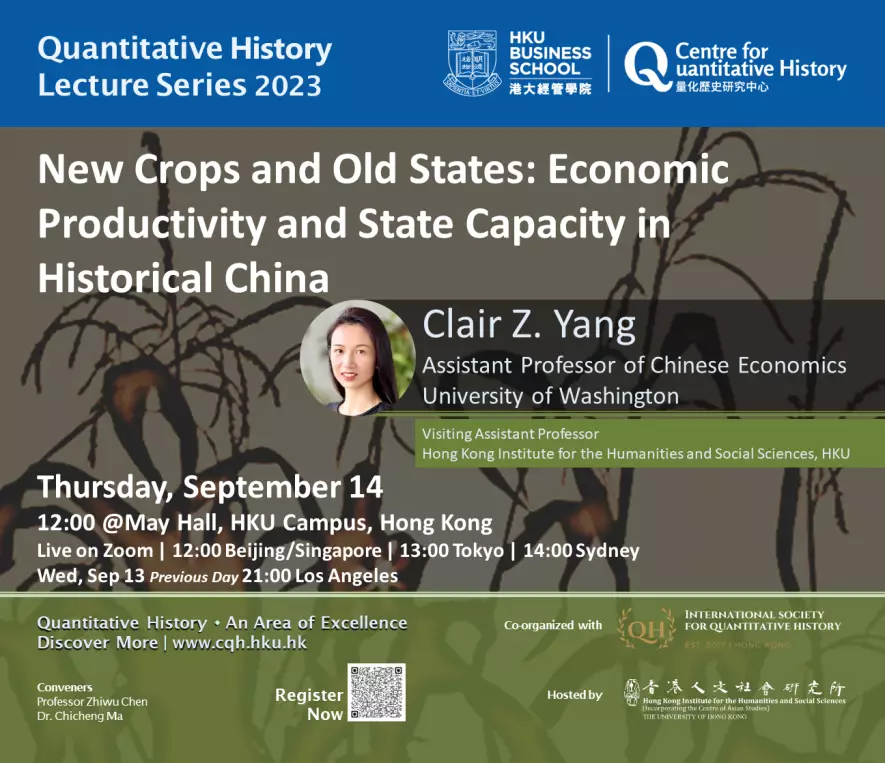 Date(s)
Date(s)September 14, 2023
 Time
Time12:00 - 14:00
12:00 (Hong Kong/Beijing/Singapore)
00:00 (New York)
|
21:00 (-1, Los Angeles)
|
05:00 (London)
|
13:00 (Tokyo)
|
14:00 (Sydney)
Venue
Lecture Hall, May Hall, HKU
 Language(s)
Language(s)English
Presenter(s):
Clair Z. Yang (Washington)




